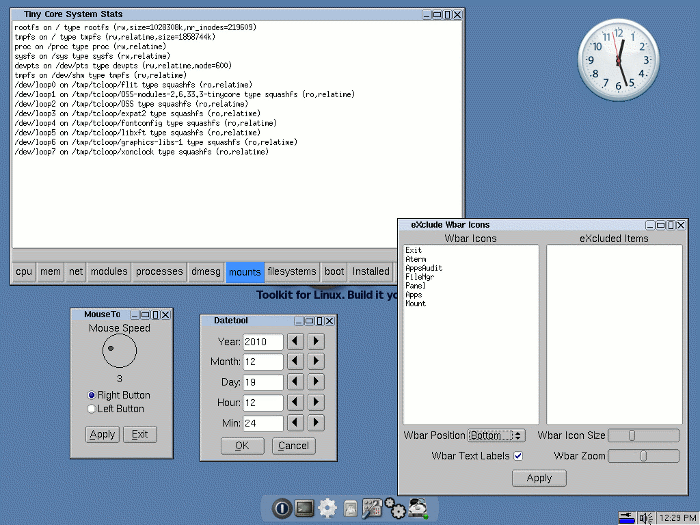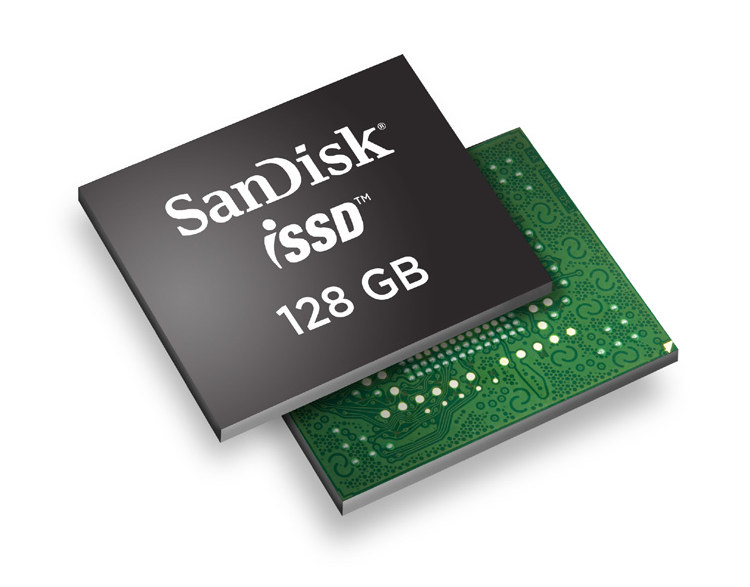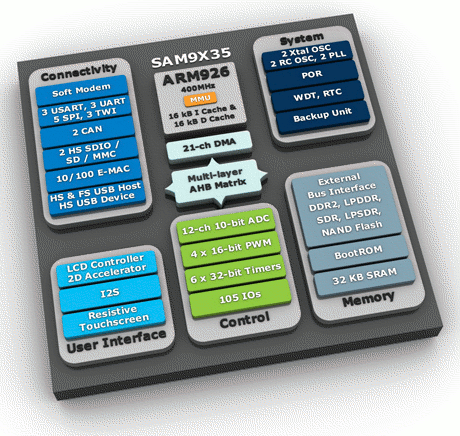ARM Technology Conference (TechCon) 2011 will be hosted in Santa Clara on the 25-27 October 2011. There will be many events and classes related to Chip Design and Software & System Design. The Software & System Design events will take place on the 26th and 27th October 2011. Here’s the schedule for Software & System Design events for the 26th of October: Time Class Track 11 am The 2012 Compute Subsystem Creating Smarter Systems 11 am Practical Cortex Debugging: Serial Wire Viewer and ETM Tracing Developing/Debugging 11 am Integrating a CMOS Imaging Sensor into an ARM-Based Embedded Application Human Interface Design 11 am Embedded IPv6 – Now is the time Networking & Connectivity 11 am RSA & AES Libraries protected against side-channel attacks Safety & Security 11 am Introduction to the ARM Architecture The Fundamentals of ARM 12 pm Optimizing SoC development through a common design foundation Creating Smarter Systems […]
HTC Releases Unlock Bootloader Tool
HTC has finally released its “Unlock Bootloader” tool, that allows owner of HTC phones to develop software on their smartphone and/or to replace the current Android version by another version. Read HTC announcement below: HTC is committed to listening to users and delivering customer satisfaction. We have heard your voice and starting now, we will allow our bootloader to be unlocked for 2011 models going forward. We plan on releasing the updates that will allow you to unlock your bootloader in the coming months, please keep an eye on this website for more details on which devices will be adding this feature. We are extremely pleased to see the energy and enthusiasm from our fans and loyal customers, and we are excited to see what you are capable of. HTC eagerly anticipates your innovations. Currently it is only available for HTC Sensation (EU) with support planned for HTC EVO 3D […]
New Revision of C++ Programming Language: C++11
The Final International Draft standard (FCD) was unanimously approved on August 12th, 2011. The standard should be published this year. The draft name of the standard is C++0x, but since it will be published this year, it should probably renamed C++11, and if there are delays in its publication it could well be renamed to C++12. You can download the 1334 pages “Working Draft, Standard for Programming Language C++” to get the full details. If you don’t feel like going thru that massive document, but still want to learn about C++0x, I recommend you check the C++0x FAQ on Bjarne Stroustrup (The creator of C++) homepage. Here are some the new features and improvements: initializer-lists – Initializer lists are not just for arrays any more uniform initialization syntax and semantics template aliases (previously know as template typedef) rvalue references defaulted and deleted functions variadic templates auto – deduction of a type from […]
Tiny Core Linux Distribution: 10 MB Linux UI Desktop
If you are looking for a small footprint Linux distribution, you may be interested in Tiny Core Liunx. Here’s the description on Tiny Core Linux Website: Tiny Core Linux is a very small (10 MB) minimal Linux GUI Desktop. It is based on Linux 2.6 kernel, Busybox, Tiny X, and Fltk. The core runs entirely in ram and boots very quickly. Also offered are Micro Core, a 6 MB image that is the console based engine of Tiny Core, and Multi Core, which includes Tiny Core, Micro Core, networking tools and an installer. Micro Core contains CLI versions of Tiny Core’s programs allowing the same functionality of Tiny Core’s extensions, only starting with a console based system. It is not a complete desktop nor is all hardware completely supported. It represents only the core needed to boot into a very minimal X desktop typically with wired internet access. Tiny Core […]
SATA-IO µSSD Standard for Embedded Solid State Drives
The Serial ATA International Organization (SATA-IO) recently announced a new standard for embedded solid state drives (SSDs) called “SATA µSSD”. This standard offers high-performance, low-cost, embedded storage solutions for mobile computing platforms like ultra-thin laptops. The µSSD specification eliminates the module connector from the traditional SATA Interface, allowing drives to be manufactured in single ball grid array (BGA) packages that sit directly on a motherboard. The new µSSD standard should be part of the SATA Specification. However, it does not seem to be in the latest SATA Specification (Revision 3.1) released in July 2011. This specification is available free of charge to members. For non-members, it can be purchased here for 25 USD. Sandisk is currently the only company providing products that follow the µSSD standard with its iSSD™ integrated storage device offering capacities of 8, 16,32, 64 & 128 GB and transfer throughput of up to 450MB/s via a […]
HTC Releases OpenSense SDK
HTC recently released OpenSense SDK, a framework encompassing all available HTC SDKs as well as features that will be offered in the future for HTC Sense user interface. Supported features include: Common Controls API: UI widgets and components that will provide developers with the ability to provide the Sense UI look and feel to their applications. Stereoscopic 3D (S3D) API: API documentation and sample code that illustrates how to programmatically enable the 3D display mode of the parallel barrier based screen for various types of applications. This API is provided as part of the phone add-on extension to the Android SDK. Tablet Pen API: API documentation and sample code for providing a framework for fully fledged drawing and painting applications as well as full access to the pen events at a low level. This API is provided as part of the tablet add-on extension to the Android SDK. API documentation […]
Pandaboard Benchmark: Android (Pandroid) vs Linaro Android
Here’s a video with two Pandaboards (powered by TI OMAP 4) running Android. On the right, there’s Google’s Android, built with the gcc 4.4 toolchain provided by Google and the Pandroid kernel. On the left, there is a Linaro build, using Linaro’s gcc 4.5 toolchain and Linaro’s 3.0 kernel for the Panda board. There is a noticeable difference in the time taken by both boards to execute the demo. (Android Linaro being faster). The demo (Benchmark by 0xlab) uses software decode on both boards. They also showcase the Freescale i.MX53 and ST Ericsson Snowball development boards.
5 New Atmel SAM9 Processors: SAM9G15, SAM9G25, SAM9G35, SAM9X25, and SAM9X35
Atmel recently announced five new embedded processors for its SAM9 family all running at 400MHz, featuring 100mW consumption, support for DDR2 and NAND flash memory, with some models offering LCD touchscreen support and CAN interfaces: SAM9G15 based on ARM926EJ Embedded Microprocessor Unit with LCD, Touchscreen, HS USB and LPDDR/DDR2/MLC NAND support. SAM9G25 based on ARM926EJ Embedded Microprocessor Unit with Ethernet, HS USB and LPDDR/DDR2/MLC NAND support. SAM9G35 based on ARM926EJ Embedded Microprocessor Unit with LCD, Touchscreen, Ethernet, HS USB and LPDDR/DDR2/MLC NAND support. SAM9X25 based on ARM926EJ Embedded Microprocessor Unit with Dual Ethernet, Dual CAN, HS USB and LPDDR/DDR2/MLC NAND support. SAM9X35 based on ARM926EJ Embedded Microprocessor Unit with LCD, Touchscreen, Ethernet, Dual CAN, HS USB and LPDDR/DDR2/MLC NAND support. The 3 new SAM9G processors are basically a lower cost version of the SAM9G45 with less cache, no video decoding support, etc… The 2 SAM9X processors are similar but feature […]












